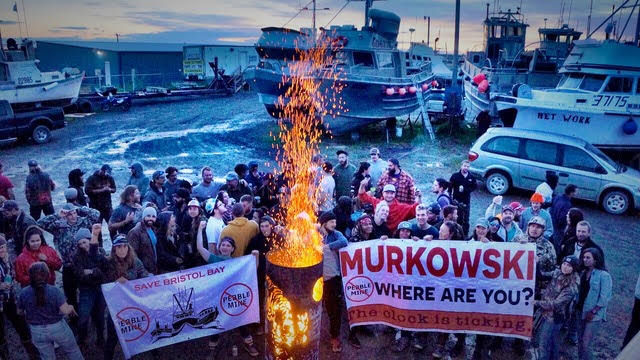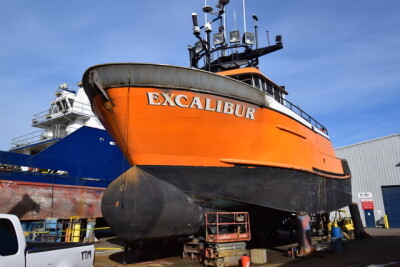Fishermen in Alaska's Bristol Bay kicked off the region's commercial salmon season this week. Most of the fleet and other stakeholders, however, have been focused on their long-term prospects in the bay since the February release of the Army Corps' draft environmental impact statement on the proposed Pebble Mine.
“Our industry in Bristol Bay is in the fight of our lives against relentless attempts by the Pebble Limited Partnership fueled by a 'dig baby dig' attitude from the U.S. Army Corps of Engineers, to develop the world’s largest and most dangerous open pit mine at the headwaters of our fishery," said Alaskan Alexus Kwachka of the F/V No Point on opening day in Naknek. "At this point, Bristol Bay fishermen and Alaskans, who still overwhelmingly oppose Pebble, are looking to Sen. Lisa Murkowski to deliver on her longtime promise of ensuring a permitting process that protects the interests of Alaskans and does not trade one resource for another."

Bristol Bay fishermen have been corking Sen. Lisa Murkowksi by the hundreds. Commercial Fishermen for Bristol Bay photo
Murkowkski has continued to deflect direct action against the proposed mine.
“As I have said in the past," the Alaska senator wrote in response to fishermen's requests for her intervention, "we must have confidence that Bristol Bay’s world-class fisheries are protected, and I expect the Corps’ process to remain fair, rigorous and transparent as Alaskans provide their views."
More than ever before in this long-fought battle over the mine, wide-ranging interests have gone public in opposition to the mine. Intervening interests include the North Pacific Fishery Management Council, the Kodiak City Council, the American Fisheries Society, researchers at the University of Washington's School of Aquatic and Fisheries Sciences, and Trident Seafoods.
“Trident Seafoods opposes the Pebble Mine project because it poses a significant risk to the many families, businesses, and communities that rely upon the natural resources of Bristol Bay," the company wrote in a preseason letter to its Bristol Bay fleet. "The current analysis does not provide certainty because among other things it only analyzes a 20-year time frame and unrealistically small footprint for the mine. It does not consider the impact of a catastrophic failure and fails to study the effect on the marketability and perception of Alaskan seafood."
Comments on Pebble’s permit application and the draft EIS can be submitted online or by mail until Monday, July 1.







